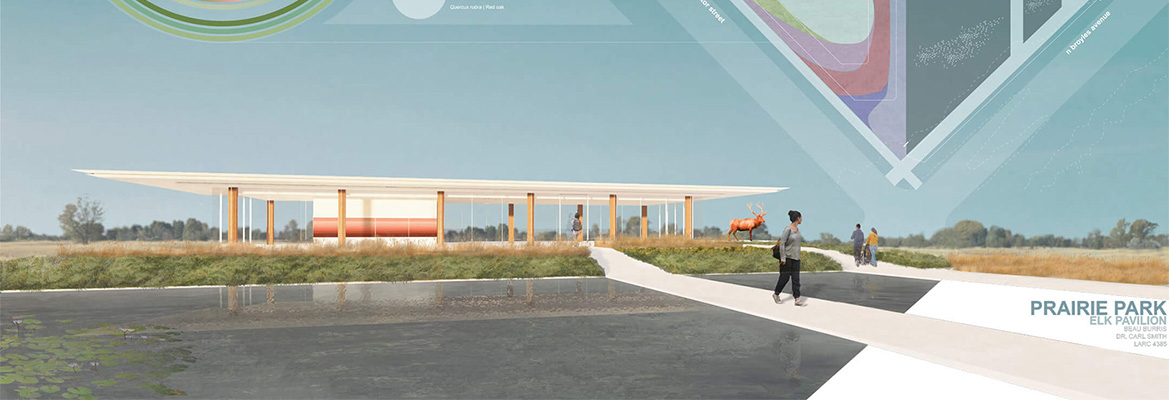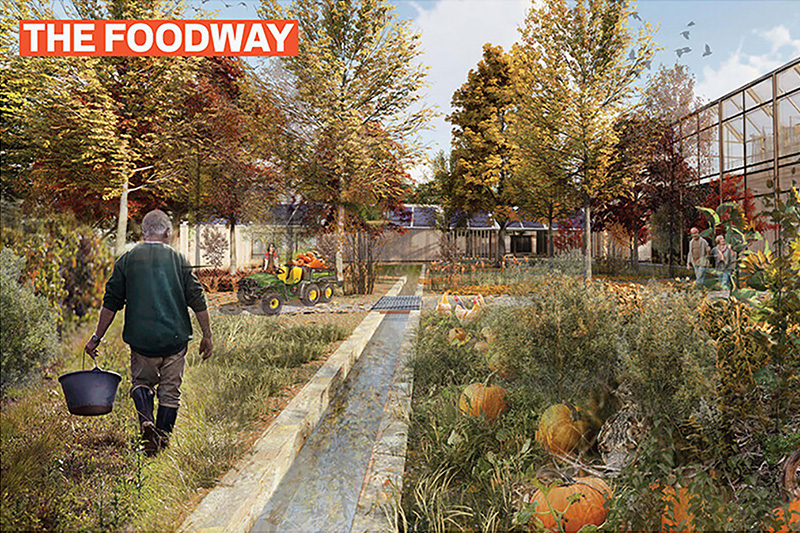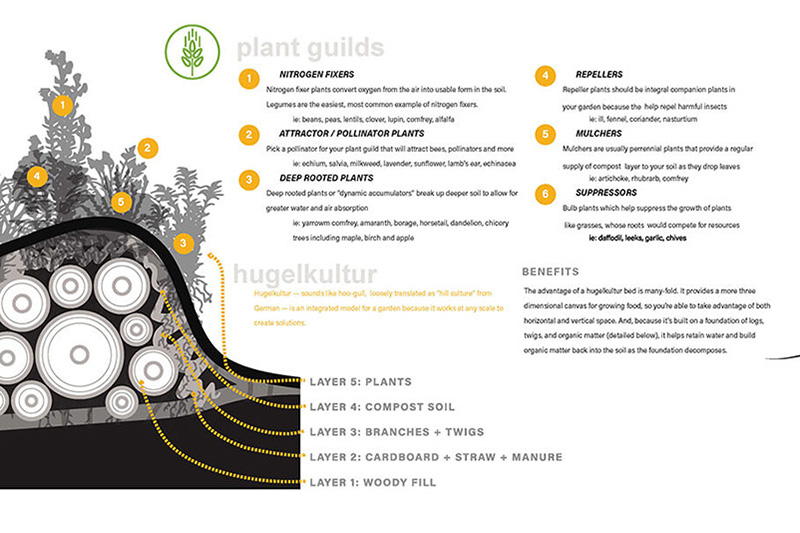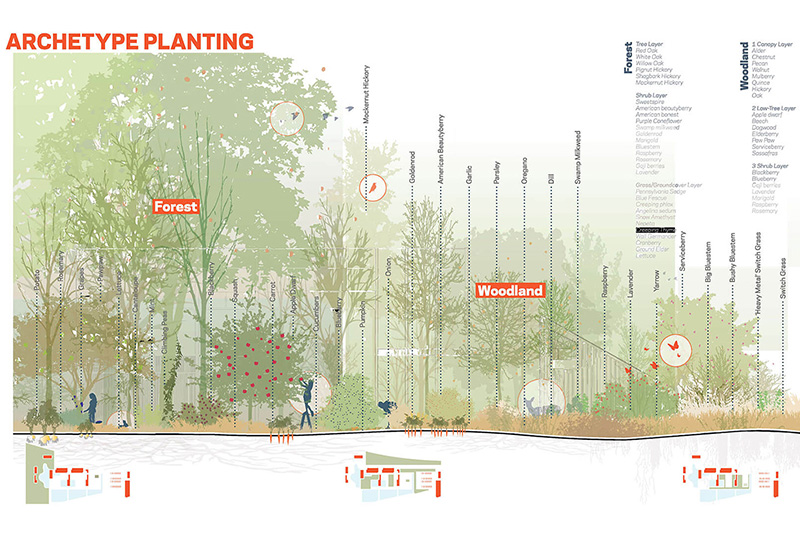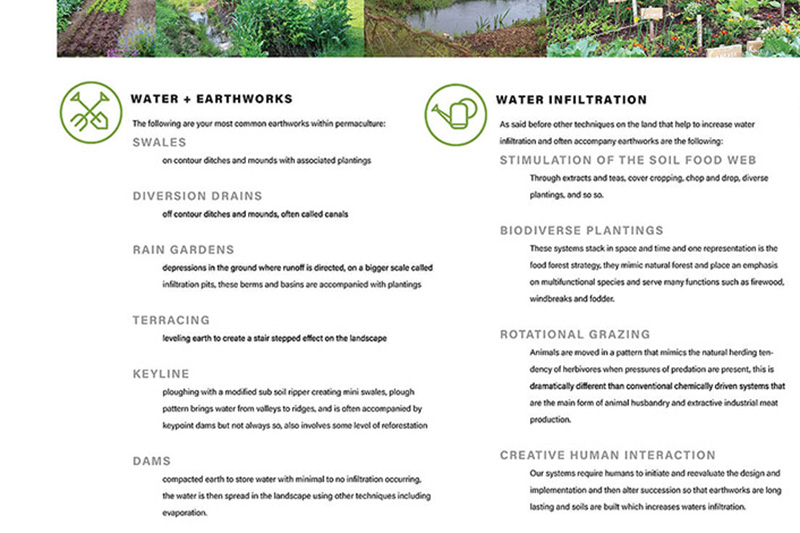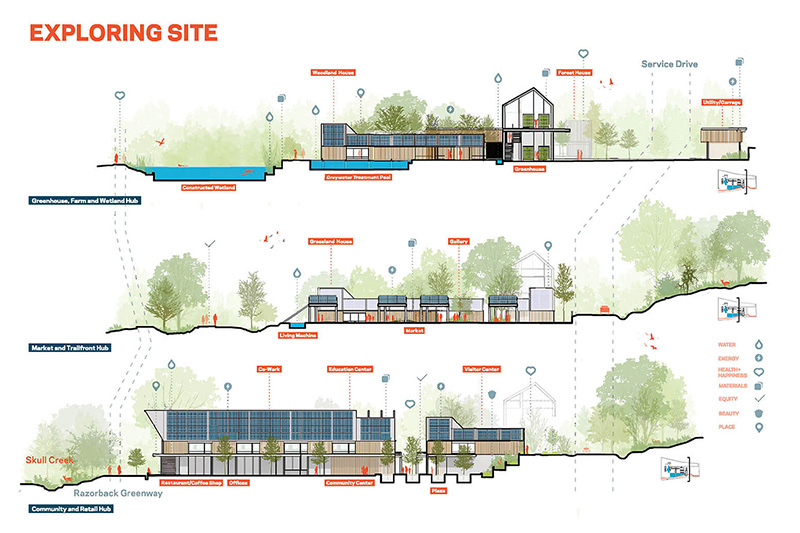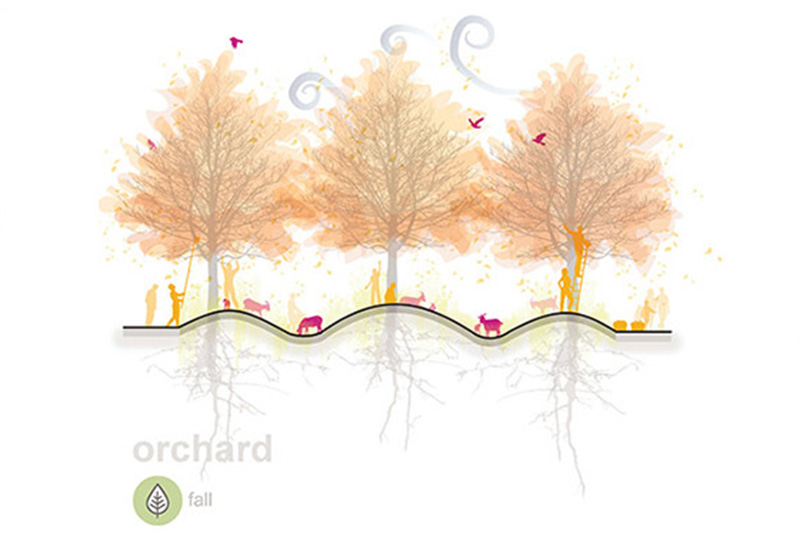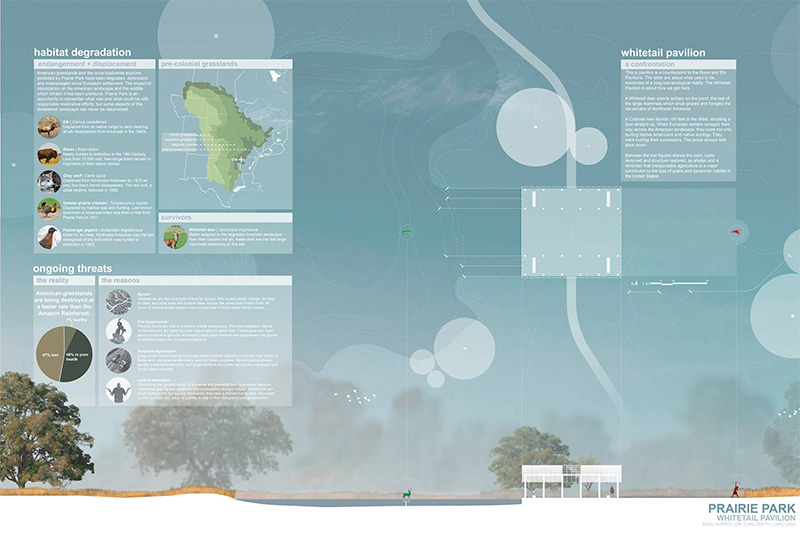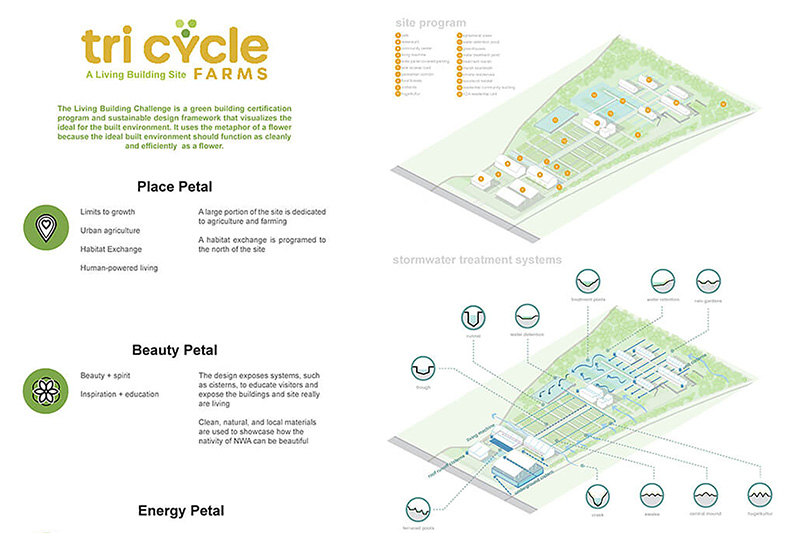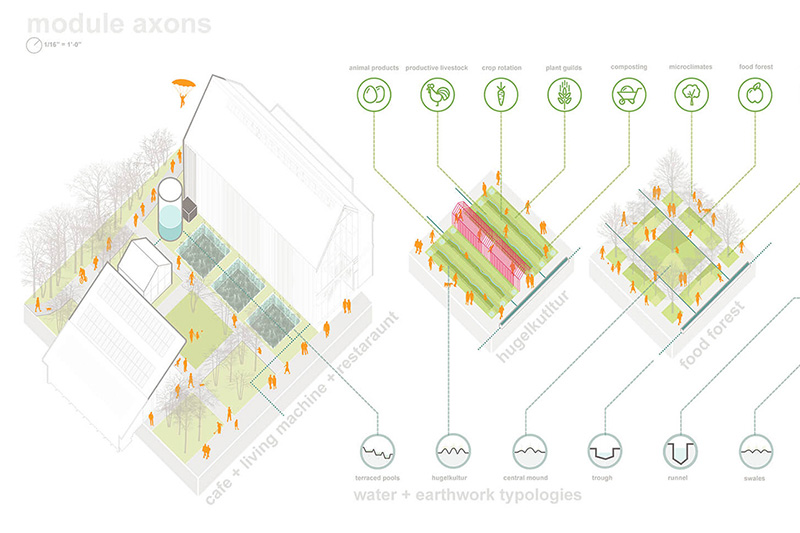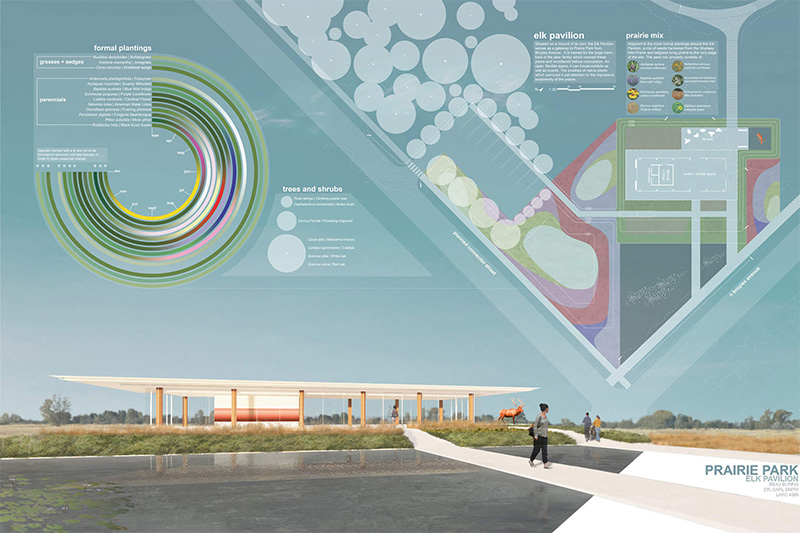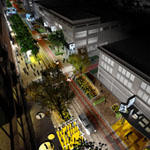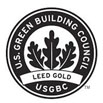Spring 2019
Discipline: Landscape Architecture
Year Level: 4th & 5th
Professor(s):
Dr. Carl Smith, Associate Professor of Landscape Architecture
Description:
This studio involved a masterplan vision, and supporting architectural proposals for a 40-acre site in the west part of Fayetteville. The site was recently signed into a conservation easement by the city of Fayetteville. This masterplan entrusts the Northwest Arkansas Land Trust with a basic program of visual access to clean energy production and carbon sequestration through the ongoing management of a remnant prairie; physical public access in the form of footpaths with interpretive signage; and a small, four-car LID parking area for visitors.
However, the studio goes much further to propose what this landscape should be against the following future-facing scenarios: an ongoing wastewater facility at this general location that accounts for local population growth to 2050; a massive increase in the cost of fossil fuels; increasing climate change that will affect natural habitat mosaics and calls on carbon-responsible construction; and the city's continued commitment to quality of life and equity for all citizens, especially through cultural arts and non-auto transit, and access to greenspace in the face of increasing urbanization in the region. The studio included collaboration with the Northwest Arkansas Land Trust; city of Fayetteville; Entegrity energy consultants; and Marlon Blackwell, FAIA.
